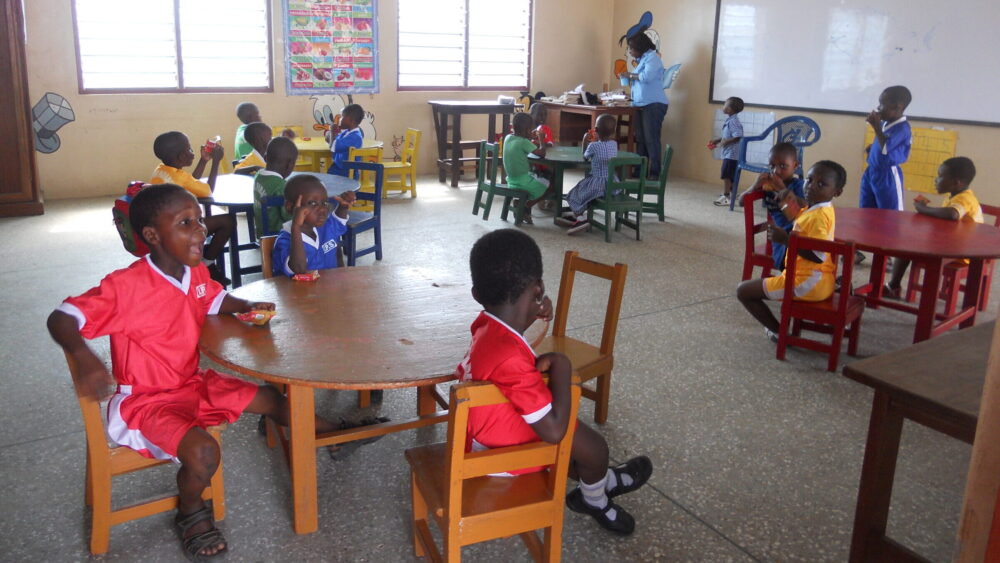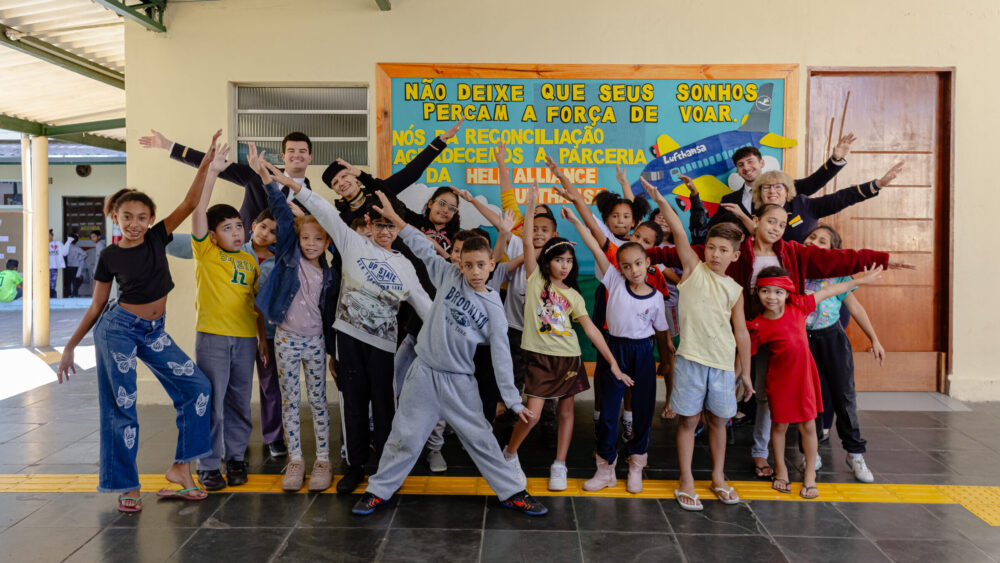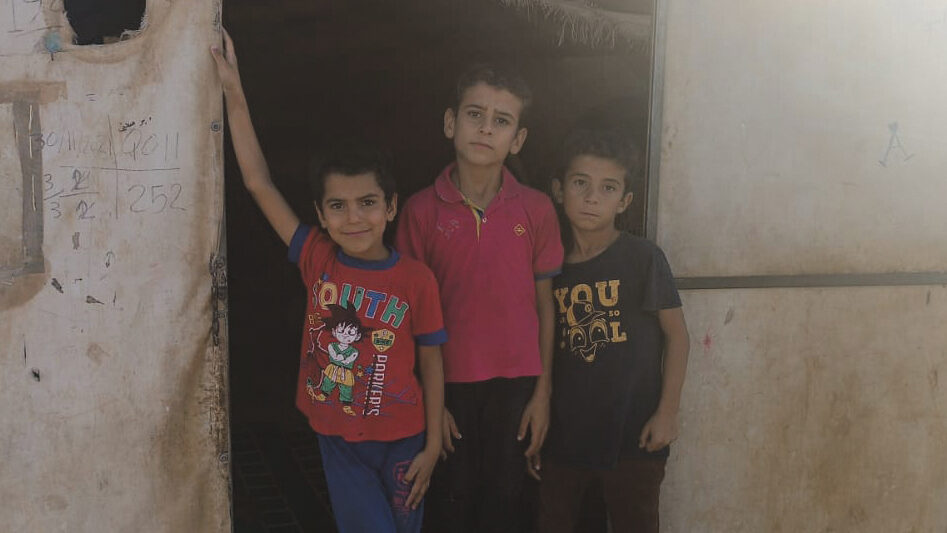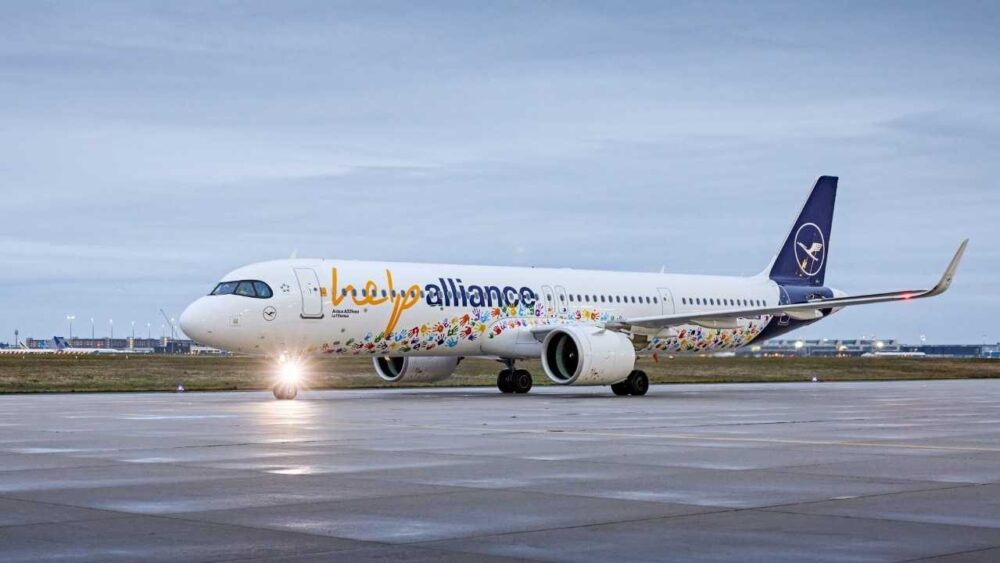
“We have had to learn to be patient
In conversation with Silke Rösler and Heike Drechsler
Silke Rösler, the director of Kinder Paradise in Accra, and Heike Drechsler-Atta, the doctor of Kinder Paradise, gave us an exclusive interview about their work and experiences at Kinder Paradise on the occasion of the 10 years of cooperation between Kinder Paradise and the Lufthansa office in Accra.
Kinder Paradise has been in existence since 1998, what has become of the first children so far?
The first children were already around 10 to 14 years old when they were admitted to Kinder Paradise and have attended school for a correspondingly longer time. After completing a vocational training they are all employed.
How many former “children” still come regularly to the project?
70-80% of the alumni come to visit us again and again. Almost all of the young people who have completed their schooling, have been reintegrated and are waiting for further training, work as volunteers at Kinder Paradise. They help in the kitchen, the school, the home routine and with renovation work. An electrician and a cook from our alumni are happy to offer their services when needed.
What is the daily routine at Kinder Paradise like?
The children and teenagers in the Children’s Paradise home start the day with small household chores such as sweeping and cleaning. Then they go to school. After school there is free time and then they do their homework. On the weekends there are leisure programs and learning opportunities, occasionally also excursions.
What everyday problems (of the children) do you have to struggle with again and again?
Almost all children have suffered a strong loss of confidence due to their history and do not want to open up. It can take up to several years before they feel safe enough to open up. Another problem is that most of the children did not go to school before they were admitted to Kinder Paradise. Therefore it is difficult to bring them up to a comparable level of education with their peers.
What is the most beautiful story that comes to your mind spontaneously?
A young girl, who could not (did not want to) indicate where she came from, was convinced by the loving, constant efforts of one of our social workers to reveal something about her family and her home town. A visit to the family by the social worker revealed that the girl had disappeared on her way to get something and never reappeared. The family had assumed she was dead. But the girl had been kidnapped and managed to escape. She was so afraid of her kidnapper, who was an influential man in her hometown, that she did not dare to reveal anything for 4 years for fear of her life. She was reunited with her overjoyed family.
And the saddest?
A little 13-year-old girl who came to our day centre because she was sick turned out to be pregnant. She was an orphan from very poor circumstances and had been brought to the capital to work. Soon she lost her shelter and lived on the streets. She was taken in by a man who wanted to “help” her but sexually abused her. The girl was so small and tightly built that she could not have given birth without a caesarean section. We took care of all the preliminary examinations, but we needed an agreement from her family to have it done. Her family gave this at first, but then let herself be persuaded by the family of the offender not to seek criminal prosecution. Despite being informed that neither the girl nor the unborn child could survive a normal birth, her family took the girl to her very remote village without any possibility of medical care. They trusted that the herbal healer could ensure a safe birth. Even the authorities involved could do nothing about it. We never heard from the girl again.
What is the most important thing you have learned about yourself through working in the field?
We have learned to be patient, to take into account the other circumstances of life on site when planning and implementing the project, and to be flexible enough to put aside your own expectations and plans when necessary for the development of the project.
The Kinder Paradise exists now for over 16 years, what has changed in that time?
From an original idea to help individual children, structures have grown and developed that have turned the project into an organisation that works in many areas across the board (from direct care of street children to schooling, vocational training and family reunification, as well as participation in governmental committees to create national standards and child rights guidelines).
True to the motto: “Standing still is a step backwards: we look to the future!” What’s the next big thing planned at Kinder Paradise?
All districts in Ghana are to establish multidisciplinary Social Protection Committees, which should conduct surveys and develop strategic documents and guidelines in the areas of poverty, education, agriculture, health, street children, disabled, orphans and widows, as well as senior citizens. Kinder Paradise has been appointed to one of these committees and is pleased to be able to actively participate in the fight against the causes of children who end up on the streets.
Furthermore, Kinder Paradise would like to admit more children if the necessary funds are available.



